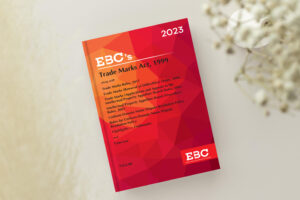Delhi High Court: An appeal was filed challenging the order of the District Judge (Commercial Court), which vacated the ad interim injunction previously granted in the appellant’s favor seeking to reinstate the injunction on the grounds that the impugned order is patently illegal and unsustainable in law. A division bench of C Hari Shankar and Ajay Digpaul, JJ., quashed the impugned order and restored the ad interim order dated 09-10-2020, passed by the Commercial Court.
The appellant was the registered owner of the trademark INDIA GATE, of which it has been using the mark since 1993 for rice. The respondents also started dealing with rice under the name BHARAT GATE. The appellant filed a suit before Commercial Court seeking a permanent and mandatory injunction against the respondents using the name BHARAT GATE on grounds of infringement of the appellant’s registered trademark “INDIA GATE” within the meaning of Section 293 of the Trade Marks Act, 1999 as well as an attempt by the respondents to pass off its product as the product of the appellant. The plaint was accompanied by an application under Order XXXIX Rules 1 and 2 of the Code of Civil Procedure, 1908 seeking interlocutory injunction restraining the respondents from using the mark BHARAT GATE for rice or any allied or cognate products.
On 9-10-2020, the Commercial Court granted an ex parte ad interim injunction in favour of the appellant and against the respondents, restraining the respondents from using the trademark BHARAT GATE in respect of rice or any other associated or allied product. By the impugned order, the Commercial Court has vacated the ad interim injunction granted 9-10-2020 and has dismissed the Order XXXIX application filed by the appellant. The Commercial Court held that there is no phonetic similarity between BHARAT GATE and “INDIA GATE” and the two marks are distinct in packaging, colour and design with blue and green colours predominating the appellant’s mark and red predominating the respondent’s mark, which had a different design, there was no chance or likelihood of confusion. Thus, the Commercial Court vacated the ad interim injunction granted by the predecessor and dismissed the appellant’s application under Order XXXIX Rules 1 and 2 of the CPC.
The Court noted that the deceptive similarity between the INDIA GATE and BHARAT GATE marks, as is likely to result in confusion or a presumption of association between the marks, is starkly apparent. Thus, the mark BHARAT GATE clearly infringes the mark INDIA GATE. Both are used for the same goods. They are phonetically similar. “Bharat” and “India” convey the same idea, and both are used for rice. The triple identity test, too, therefore, stands satisfied.
The Court further noted that when one compares, visually, the appellant’s INDIA GATE and respondent’s BHARAT GATE marks, as used on their respective packs, it is apparent that the respondent has, besides using a word mark which is phonetically similar and representing the same idea as the appellant’s mark, also copied the essential features of the appellant’s mark.
The Court remarked that “I am, quite frankly, unable to appreciate how the learned Commercial Court could hold that, in the respondent’s mark, seen by the eye, the Taj Mahal was prominent, and that the India Gate is visible only when the viewer views the package “with great care and concentration”. It appears that the learned Commercial Court might have been referring to some other mark, as, in the respondent’s mark, it is the image of the Taj Mahal, if anything, which is disproportionately small as compared to the India Gate, which occupies the entire foreground.”
The Court concluded that Commercial Court has proceeded on the following premises which are erroneous, both in fact and in law:
(i) that there is no phonetic similarity between INDIA GATE and BHARAT GATE,
(ii) that the fact that there are differences in colour and design between the appellant’s and respondent’s marks mitigates the possibility of confusion,
(iii) that the appellant could not seek injunction as (a) the appellant could not claim exclusivity over the word “India”, and it was open to anyone to use the said word, or its synonyms including “Bharat”, for any goods, and (b) the word “Gate” was publici juris,
(iv) that the image of the India Gate was not prominently visible on the image of the BHARAT GATE mark as printed on the respondent’s packs, and
(v) that the appellant’s and respondent’s products were so differently priced as to render their customer segments different, thereby mitigating any likelihood of confusion.
Thus, the Court held that the respondent had, with clear intent to capitalize on the appellant’s goodwill, adopted a mark which is transparently and deceptively like the registered trade mark of the appellant. Resultantly, the impugned order, dated 09-01- 2024, passed by the Commercial Court was quashed and set aside and the ad interim order dated 09-10-2020, passed by the Commercial Court, stands restored.
[KRBL Limited v. Praveen Kumar Buyyani, 2025 SCC OnLine Del 198, decided on 15-01-2025]
Advocates who appeared in this case :
Mr. Anirudh Bakhru, Mr. SK Bansal, Mr. Deepak Shrivastava and Mr. Vijay C Rathi, Advocates for appellants
None for respondents





Gateway Of India. Initially used as a jetty for the fisher folk of the area, Gateway of India at Apollo Bunder was later turned into a landing place for British governors and other officials. …
The India Gate stands almost 138 feet tall and 30 feet wide on all sides, with a large dome in the center and a flat top. It is made of red Bharatpur stone, and the arch stands on a wide base. On the top of the gate is a large shallow bowl intended to be filled with burning oil, though this rarely is done.21 Feb 2023